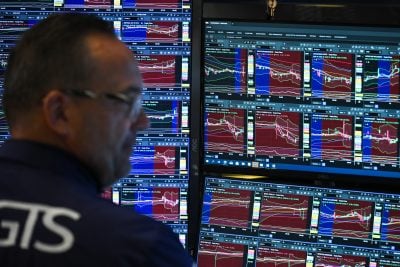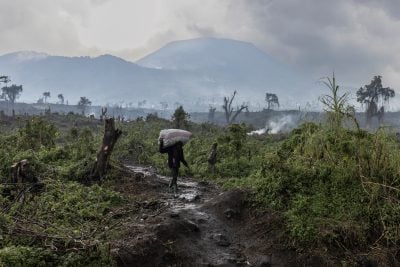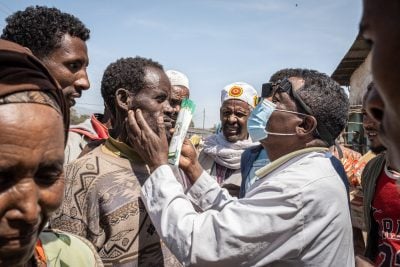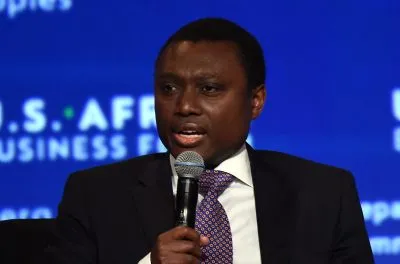Tariye Gbadegesin is managing director and chief investment officer of ARM-Harith Infrastructure Fund, one of Africa’s largest investors in infrastructure development. African Business caught up with her to find out about the fund’s current priorities and her thoughts on ESG, climate finance and Africa’s infrastructure needs.
What is the ARM-Harith Infrastructure Fund and your role in it?
We’re an infrastructure equity fund based in Lagos, Nigeria, and invest in West Africa, with some significant exposure in Nigeria given the size of the market. We are a joint venture between two institutions, ARM – one of the largest non-bank financial institutions in Nigeria managing one of the largest pension funds – and Harith General Partners, pan-African fund managers based out of South Africa. Combined their assets under management are about $3bn and both institutions have a strong track record in infrastructure.
The joint venture came out of the objective to target Nigeria and West Africa but also to channel Nigerian regional pension fund capital in addition to international capital interested in West Africa specifically. We manage capital from Nigerian pension funds as well as development finance institutions such as the African Development Bank. My role is to deal with the strategic aspects of the business ranging from development of an investible pipeline, by making those investments and positioning the fund for fundraising.
What are the main infrastructure allocation needs in Africa today?
Data that came in last year says that of the FDI that came into Africa for infrastructure about 60% went to energy and the balance went to other forms. We can see energy is by far the greatest recipient of infrastructure allocation. Energy is one of the significant gaps and over the last 10 years capital and intellectual and social resources have been applied to the energy gap.
There has been a lot of success in energy financing, which is why some African countries are at a position where from a generation standpoint there is excess supply. However, access to and delivery of power in a broad-based and equitable manner is yet to be achieved. The delivery of energy for maximum impact is still something that needs to be addressed.
With respect to other areas we’re going to need a significant level of transportation and digital payment infrastructure to benefit from the African Continental Free Trade Area [AfCFTA]. We do need to have more allocations for that space. Relative to the opportunity, transport hasn’t received the care and support you see in other areas. The same could be said for better water solutions and other non-energy infrastructure.
What are your key priorities for the fund in the medium term?
I’m working with the team to position ARM-Harith for the future. Historically our emphasis was on core infrastructure, which was your typical blue-chip IPP, toll roads, etc. We’re seeing an evolution in infrastructure to being smaller in size, more distributed and hybrid in nature. Building an investment implementation framework that enables us to expand beyond core infrastructure into more diversified forms of infrastructure is very important for our future. But also, more fundamentally, strengthening our ESG proposition, because we’ve been using ESG primarily as a risk-mitigation tool while building infrastructure with significant impact. The issue is that we haven’t built in the metrics and strategy to really benefit from that value proposition.
So our ESG value proposition is a very key area of investment we’re going to be making as we close out the investments in current funds and plan for fundraising later this year. In the meantime we’re prioritising investments that have elements of climate consciousness, energy efficiency, as well as supporting sustainable urbanisation and strengthening infrastructure connectivity for the AfCFTA.
How advanced is ESG in Africa?
It’s important for us to remember that ESG is environment, social, and governance. A lot of folks associate ESG with environment only. It’s actually a broad-based sustainability convention and context. Africa has been more focused on the S portion of ESG versus the E portion.
When you invest in African countries there’s a lot of focus on community relations, lots of rules and laws about how you engage with the community and manage the social benefits that come out of projects. You also have governance and inclusivity as an area that a lot of governments have emphasised. Environment has been more of a risk management issue. Some countries which are more advanced on the social side have been able to focus more on environment, but elsewhere they focus more on social.
Also, a lot of our focus was on ESG as risk management. You require that to be able to raise financing internationally. One wouldn’t say qualified African firms are not performing with respect to ESG, because they wouldn’t have been able to raise capital had they not managed it from a risk perspective. But where Africans are leaving value on the table is that a lot of investments have high ESG impact, but because they don’t specify that strategy, they don’t see it as a value driver. They don’t measure it, define metrics and use ESG as the point of the spear for their business. They’re having a high impact, but because they didn’t strategise to align that impact, it seems like they’re being left behind. I think we will see this change.
How can Africa pursue green industrialisation?
Thinking about how we can sustainably industrialise and position our industrial growth for a green future has always been a question I’ve tried to tackle. We don’t have a choice to say we would slow industrialisation, but rather we must find a way to industrialise in a way that’s cleaner and efficient but leverages on the opportunities of the green economy.
We’ve been a resource repository for centuries, a lot has been hydrocarbons, but there’s a lot of unexplored mineral assets that fit into the battery supply chain for example, and value additions in the recycling of plastics for components for the renewable sector. Africa needs to take a step back and plan for the next 50 years and make sure we add value and find a way to enhance what we’re producing. The era of hydrocarbon exports is coming to an end.
How can Africa’s climate concerns be heard?
The reality that Africa has the lowest emissions but is the most vulnerable does not mean Africa should not be part of the pathway to mitigating climate change. It simply means the way Africa does it and timelines and priorities need to be fit for Africa. The reality is that Africa is so vulnerable to climate change that adaptation projects are actually crucial. Things like flood bank reinforcement, agriculture yield enhancement, drought and irrigation management – these are all climate projects. But if you’re not in the room to say it’s fundamental that we allocate capital to these projects, it gets ignored. Africa has a different path but we’re very important for the conversation, one part of the globe affects another, and that’s why we need to have that conversation and Africa needs to be in the room.
Listen to the full interview on our African Business podcast.
Want to continue reading? Subscribe today.
You've read all your free articles for this month! Subscribe now to enjoy full access to our content.
Digital Monthly
£8.00 / month
Receive full unlimited access to our articles, opinions, podcasts and more.
Digital Yearly
£70.00 / year
Our best value offer - save £26 and gain access to all of our digital content for an entire year!

 Sign in with Google
Sign in with Google 





